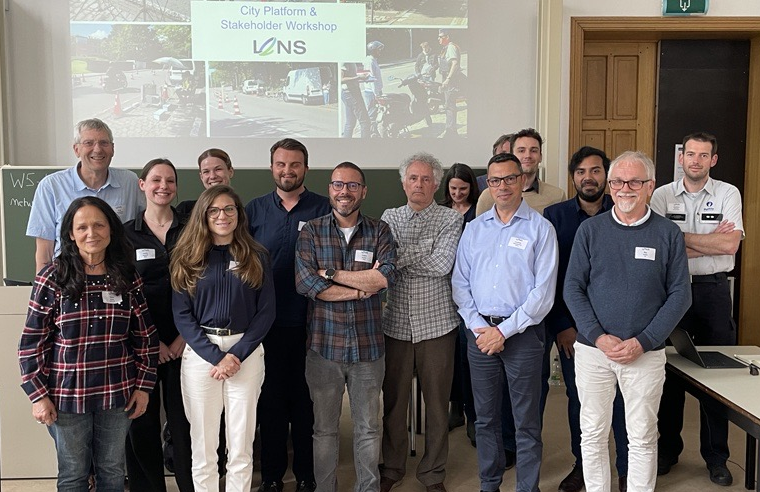The LENS on-site test campaign started this week in Leuven, which was observed by a group of external stakeholders during a dedicated workshop, which took place on 15 May 2024 in the Belgian university city. After months of preparations, laboratory tests of the noise- and air pollution equipment and joint meetings with the Leuven police, first tests of more than 100 vehicles took place at two locations in the Belgian city.
Whereas the urban L-vehicle measurements mostly focused on mopeds and delivery vehicles that cross Leuven during the evening hours, the noise and air-pollution tests at ‘Donkerstraat’ allowed to test a more diverse set of L-vehicles. Representatives from cities and citizens’ organisations across Europe gained an insight into the measurement campaign by attending the urban testing location in the heart of the Belgian city. All presentations of the event are available on the bottom of this article.
Since LENS aimed to provide a general overview of the project and its testing campaigns to the stakeholders, the focus was on providing insights concerning the laboratory- and on-street tests. Thanks to the fact that TU Graz, KU Leuven, IVL and the local police had already tested L-vehicles for two full days, first observations and insights into the experimental setup in Leuven were made. These were also illustrated by photos and videos of the conducted L-vehicle testing. Further information about the L-vehicle controls will be made available in separate news item in the upcoming days.
Impressions of the first on-site L-vehicle testing
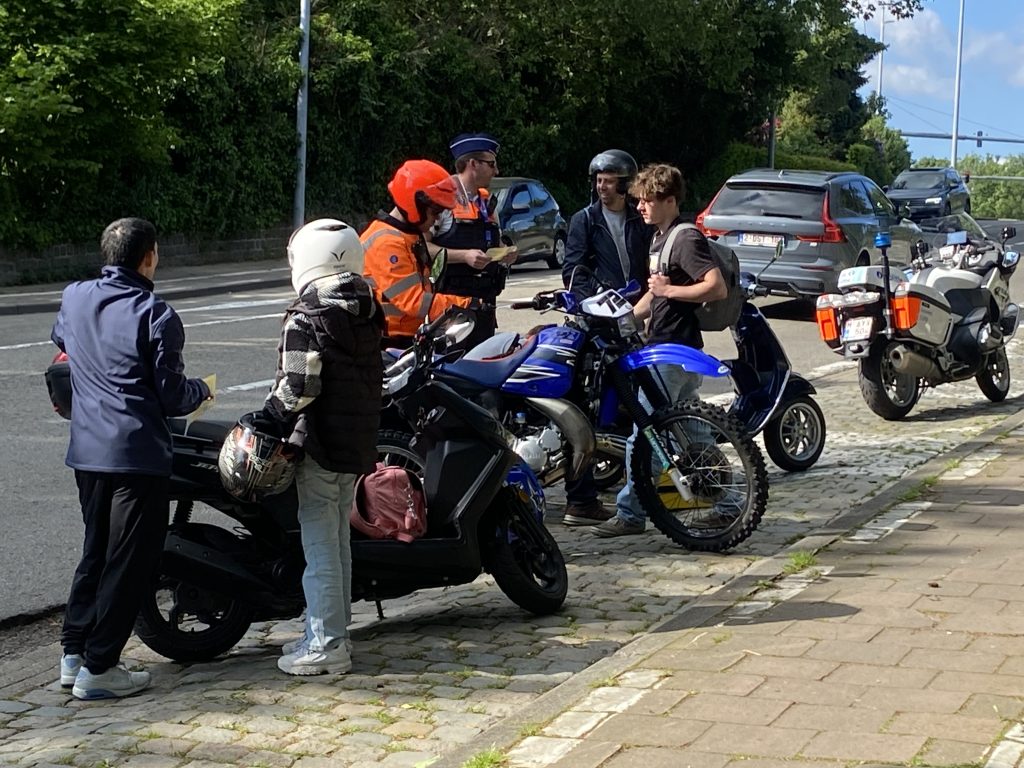
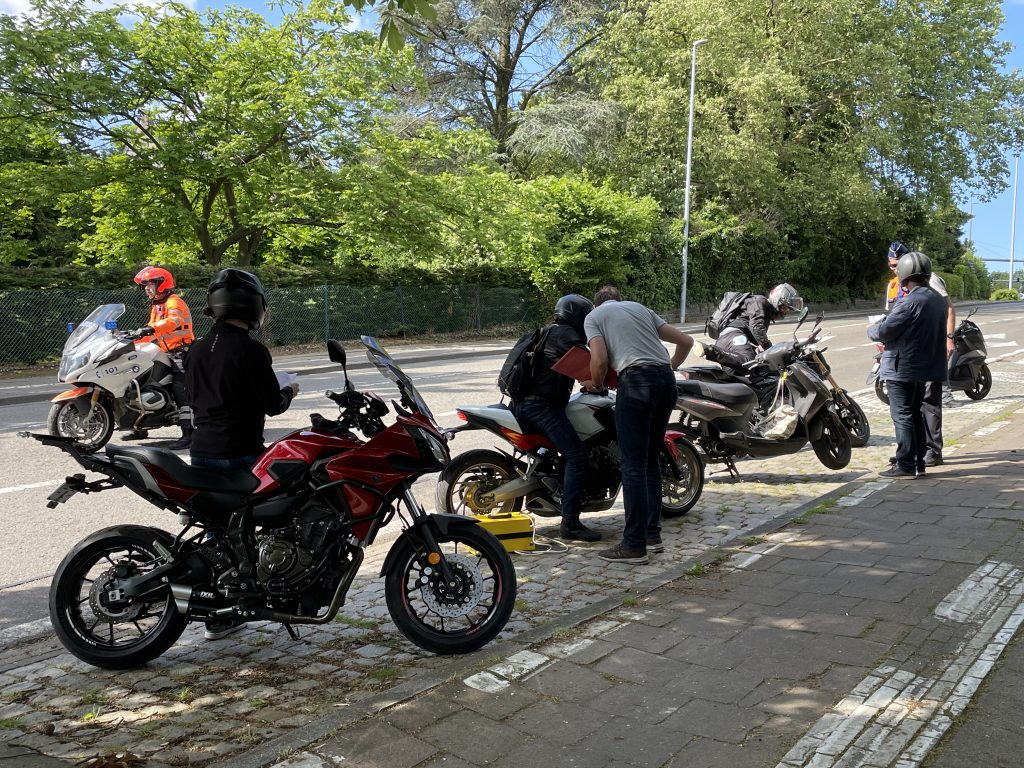
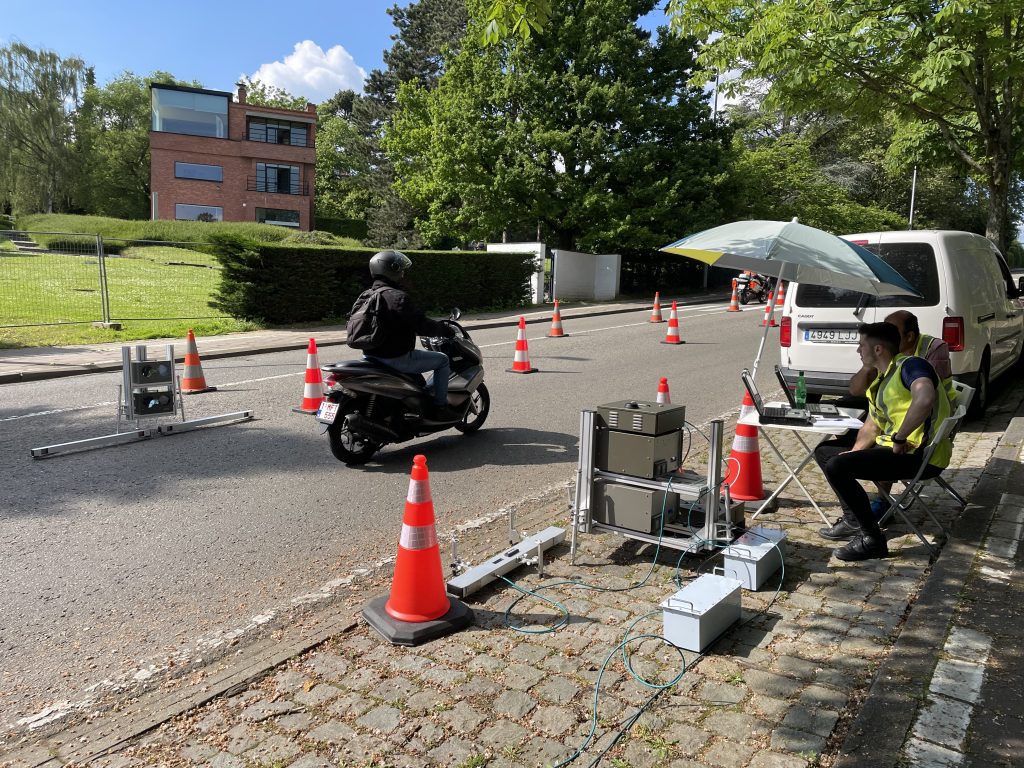
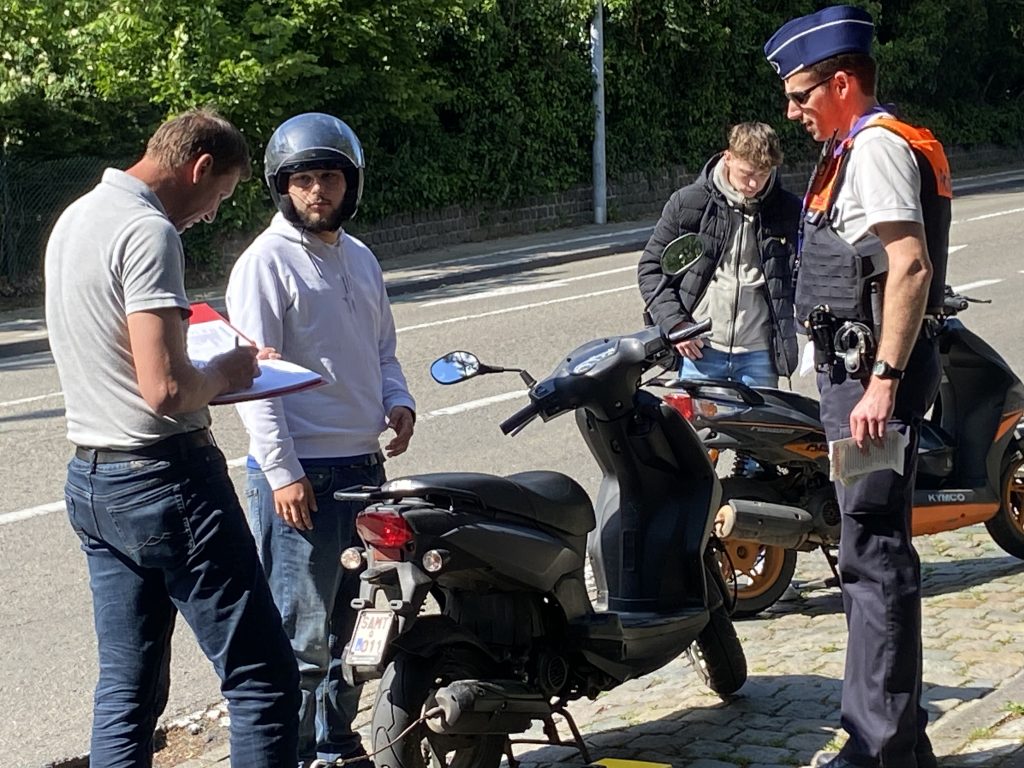
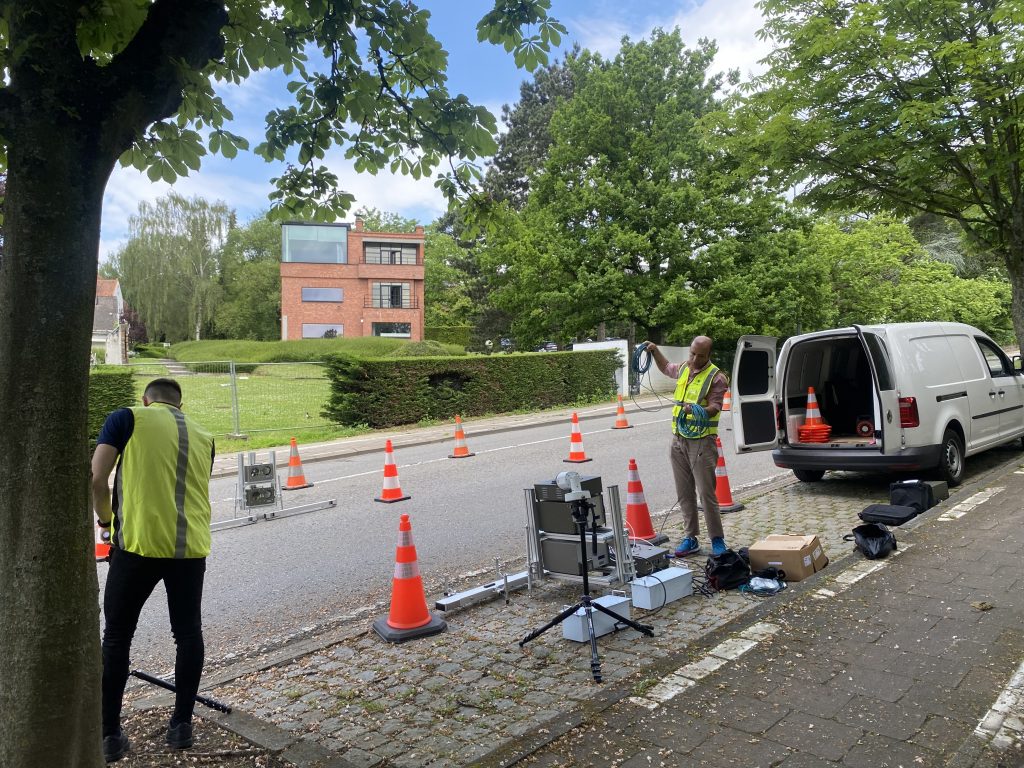
Lively exchange in a hybrid setting
After some welcome words by Tim Asperges, Mobility Advisor of Leuven, and LENS project coordinator Leonidas Ntziachristos, all aspects of the project were highlighted. These ranged from the first laboratory tests and further improvements of existing noise- and air pollution test equipment, which was partially used during the previous EU-funded CARES project, up to the overview of upcoming measurement campaigns in other European cities. These illustrative presentations helped the participants to gain insight into the measurement so that only a few questions remained unanswered during the visit of the urban testing site. Each LENS presentation was followed by several questions from physical and online participants and sparked lively debates.
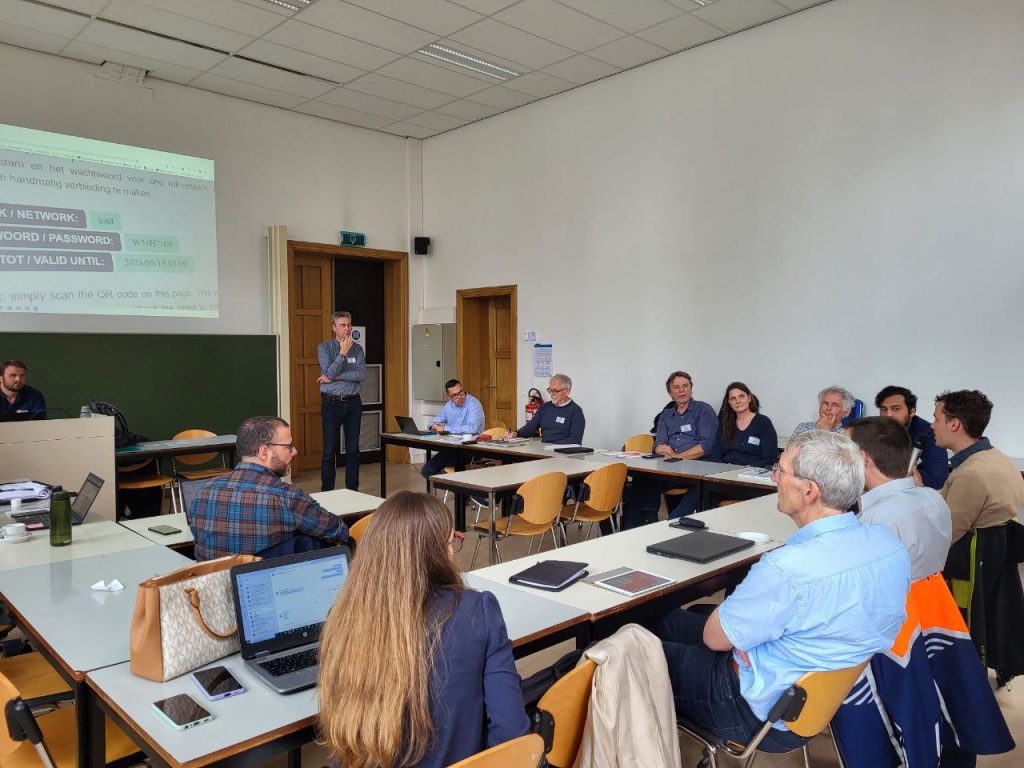
Stakeholder & City Group
Besides representatives from Budapest and Albania, several citizens initiatives showed strong interest in the topic of noise and air pollution and the LENS measurement campaigns. These groups from the Netherlands and Germany, which mostly focus on noise pollution in rural and urban areas, shared the challenges of L-vehicle nuisances for citizens. LENS project coordinator Leonidas Ntziachristos emphasised that LENS is first and foremost a research project, which currently cannot give policy recommendations. Nevertheless, the diversity of stakeholders and positions will be very beneficial to highlight the importance of L-vehicle pollution towards national and European authorities. An important aspect that will be highlighted with the policy recommendations, as part of the final project output in Spring of 2025.
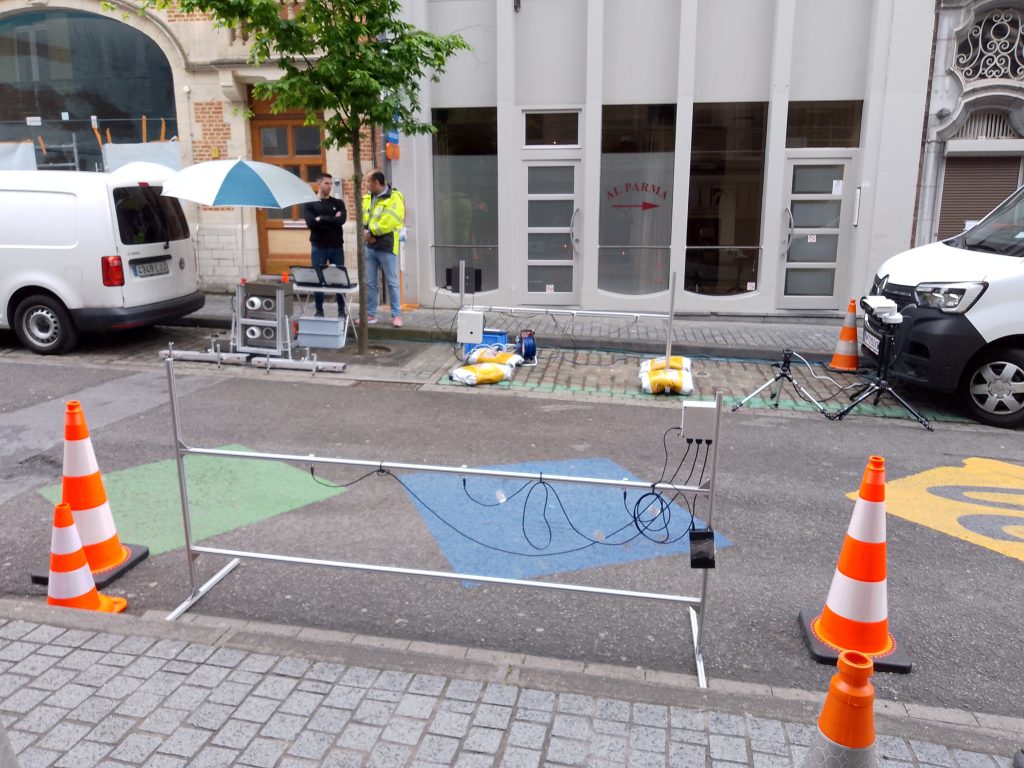
What comes next?
The LENS consortium, in cooperation with POLIS, ACEM and IFPEN, are currently organising an upcoming dissemination event, which will take place on 17-18 September 2024 in Paris (FR), in conjunction with the next measurement campaign in the French capital. Similar to the event and site visit in Leuven, all existing stakeholders are invited to learn more about the test campaign, first results of the Leuven measurements and a full day of POLIS working group meetings dedicated to two-wheelers (further information and a “save the date” will follow in the next weeks).

